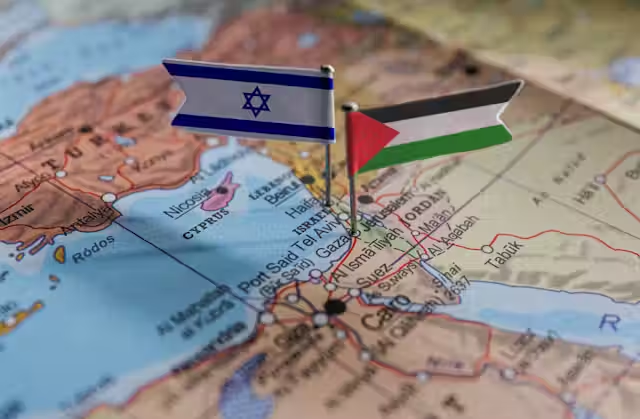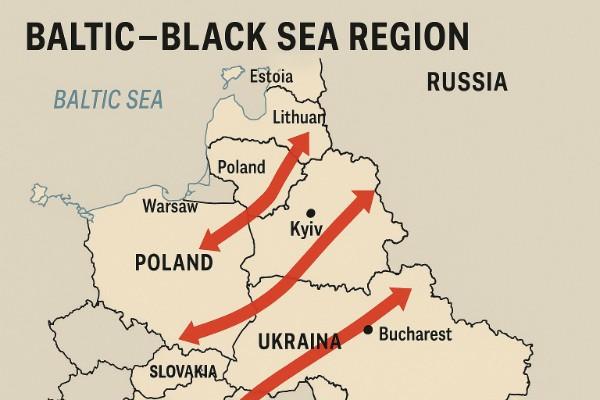Former U.S. President Donald Trump has proposed a controversial plan to relocate the two million Palestinian residents of Gaza, effectively emptying the region. The proposal, which has faced strong opposition from Palestinians, suggests permanent resettlement in neighboring countries with no right of return. Trump defended the plan, stating, “No, they wouldn’t, because they’re going to have much better housing… I’m talking about building a permanent place for them” (Trump, 2025). The feasibility and implications of this plan remain uncertain, raising questions about whether it represents genuine strategic empathy or a complex geopolitical maneuver. Munir Nusseibeh, a professor of international law at Al-Quds University in Jerusalem, criticized the proposal, stating, “He is talking as if the Palestinians are cattle, you can move them from one place to another.”
Trump’s Gaza relocation plan has placed Saudi Arabia and other Arab nations, including the United Arab Emirates, in a precarious position. If these nations endorse the initiative and facilitate the displacement of Palestinians, it could effectively dismantle the long-pursued two-state solution. This could provoke widespread public outrage and internal unrest across the Arab world. Conversely, rejecting the plan may strain U.S.-Arab relations, risking diplomatic fallout and potential economic repercussions. To navigate this dilemma, Saudi Arabia convened an emergency summit, signaling the gravity of the issue for the region.
In response, an Arab League summit was scheduled for March 4 in Cairo, following a high-level meeting in Riyadh on February 20. The earlier summit brought together key leaders, including Saudi Crown Prince Mohammed bin Salman, Jordan’s King Abdullah II and Crown Prince Hussein, Qatar’s Emir Sheikh Tamim bin Hamad Al-Thani, UAE President Sheikh Mohammed bin Zayed Al Nahyan, Kuwait’s Emir Sheikh Meshal Al-Ahmad Al-Sabah, and Bahrain’s Crown Prince Salman bin Hamad Al-Khalifa. According to sources cited by Reuters, discussions included an Egyptian-led alternative to Trump’s plan, proposing a $20 billion investment over three years, funded by Gulf and Arab states, to rebuild Gaza without displacing its population. This unified stance reflects a rare moment of Arab solidarity against the forced relocation of Palestinians.
The Arab leaders are considering an alternative framework, informally labeled the “Trump Plan,” which seeks U.S. approval while prioritizing Arab-led reconstruction efforts in Gaza. According to government sources, four potential blueprints for Gaza’s future have been drafted, with Egypt’s proposal emerging as the most viable. This plan excludes Hamas from governance, focuses on reconstruction without forced displacement, and involves international stakeholders to establish a pathway toward a two-state solution. Under this initiative, 20 temporary residential zones are being developed, with approximately 50 Egyptian and international companies engaged in rebuilding efforts. The critical questions remain: where will the funding originate, and will Hamas accept this proposal?
Reuters reports indicate that financing for Gaza’s reconstruction would be sourced from the international community and Gulf nations, potentially under a designated “Trump Fund.” Meanwhile, Saudi Arabia and the UAE, both key U.S. allies and among the few Arab states to have normalized relations with Israel, have categorically rejected any forced displacement of Gazans. They have reiterated that any peace initiative must include the establishment of a sovereign Palestinian state coexisting with Israel.
The major roadblock remains Hamas. Will the group accept international involvement in Gaza’s reconstruction, and if the United States opposes the Egyptian-led plan, will Arab nations resist U.S. pressure to proceed with Trump’s proposal? The unfolding developments will determine the trajectory of this geopolitical crisis, shaping the future of Gaza and the broader Arab world.
Table of Contents
ToggleHafiz Muhammad Hunzala Baz
- Hafiz Muhammad Hunzala Baz
- Hafiz Muhammad Hunzala Baz












